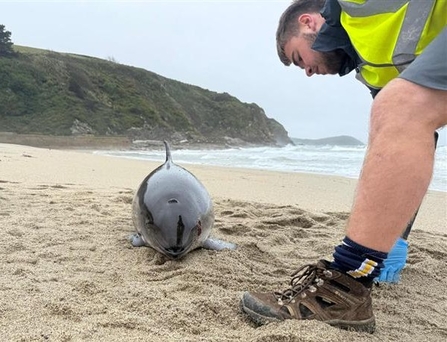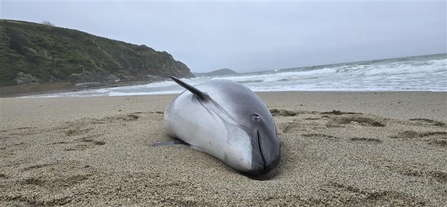Cornwall Wildlife Trust volunteers faced a tragic and emotional discovery on Good Friday (Friday 18th April), when they were called to Pentewan Beach near St Austell to examine a freshly deceased harbour porpoise. During the postmortem, it was revealed that the animal had been heavily pregnant – and both she and her near-term calf had died as a result of bycatch.
Veterinary investigator for Cornwall Marine Pathology Team, James Barnett, who has two decades of experience conducting postmortem examinations on marine mammals, described the case as one of the most distressing he has seen. “In nearly twenty years of undertaking this work, I have rarely seen a female so close to term. It was quite emotional for all of us.”
The porpoise displayed clear signs of entanglement in monofilament fishing net, also known as gillnets – a strong indicator of bycatch, which is the accidental capture of non-target species such as cetaceans. The postmortem was carried out as part of the Defra-funded collaborative Cetacean Strandings Investigation Programme.



